Inform Policies
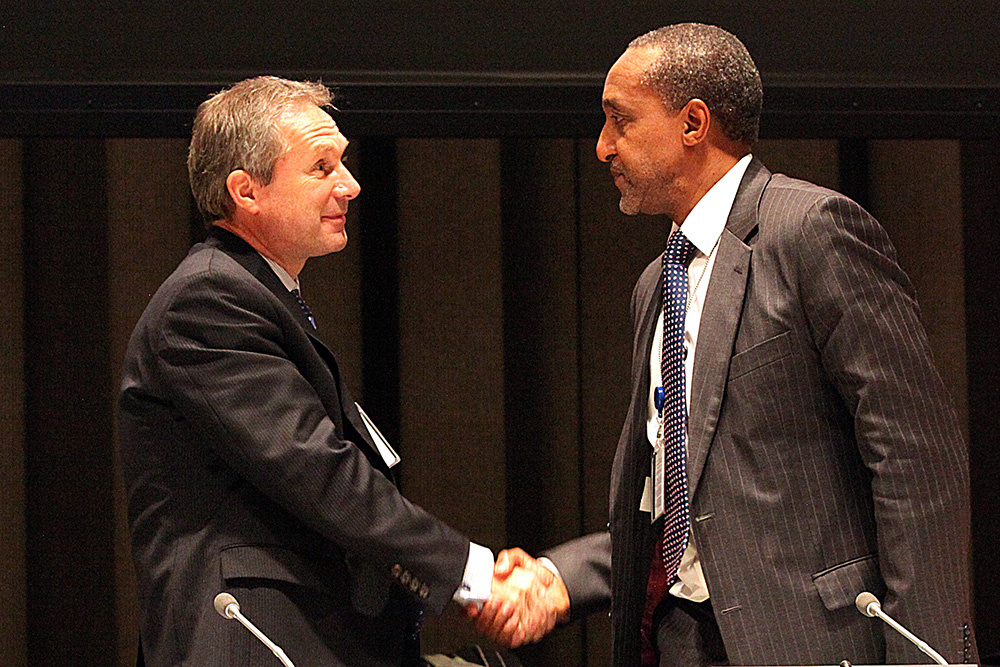
Permanent Representative of Hungary, Csaba Kőrösi, and Permanent Representative of Kenya, Macharia Kamau, Co-Chairs of the Open Working Group, shake hands at the sixth session in December 2013. Photo IISD
Key policy processes
UN-Water’s Members and Partners have helped place water and sanitation at the heart of recent milestone agreements such as the 2030 Agenda for Sustainable Development and the 2015 Paris Agreement within the UN Convention Framework on Climate Change. UN-Water also seeks to reflect the importance of sanitation and water in the 2015-2030 Sendai Framework for Disaster Risk Reduction, and the 2015 Addis Ababa Action Agenda on Financing for Development. These landmark agreements have created a global framework that is intrinsically connected and mutually reinforcing.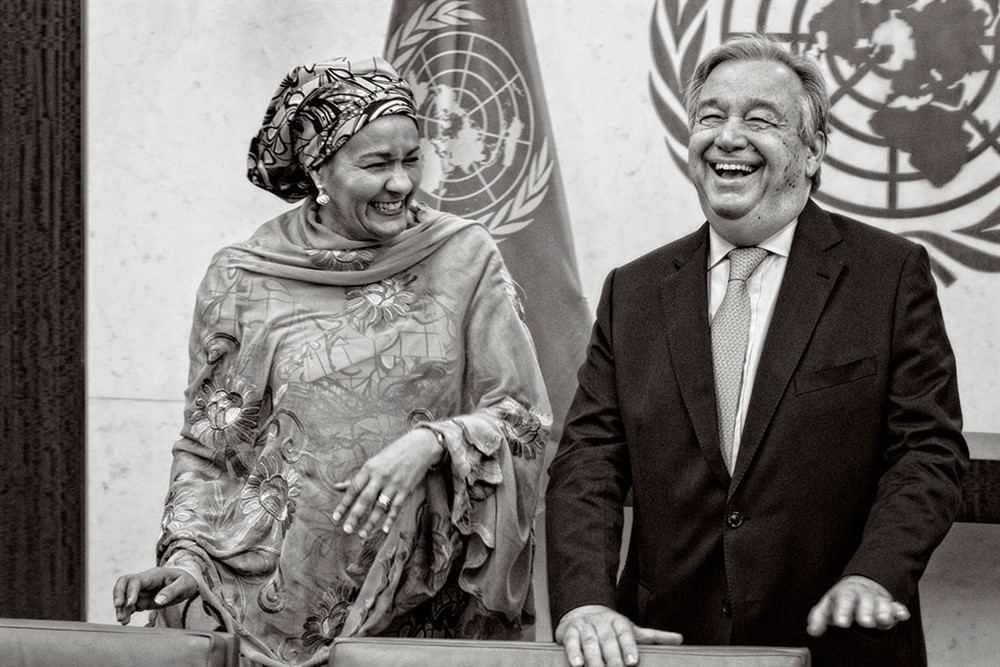
The 9th Secretary-General of the United Nations António Guterres, in his office with Deputy Secretary-General Amina J. Mohammed, on their first day at work in their new capacities. UN Photo/Mark Garten
2030 Agenda for Sustainable Development
The 2030 Agenda is a global plan of action for people, planet and prosperity. UN-Water contributes to the SDG review processes, including the High-Level Political Forum. Members and Partners also provide input to the Secretary-General’s report on mainstreaming the three dimensions of sustainable development, the Secretary-General’s report on Progress Towards the SDGs and the Global Sustainable Development Report. By undertaking analysis on the SDGs such as recent report “Water and sanitation interlinkages across the 2030 Agenda for Sustainable Development,” UN-Water is demonstrating the need to pursue the Goals in partnership with other sectors and a diverse set of actors.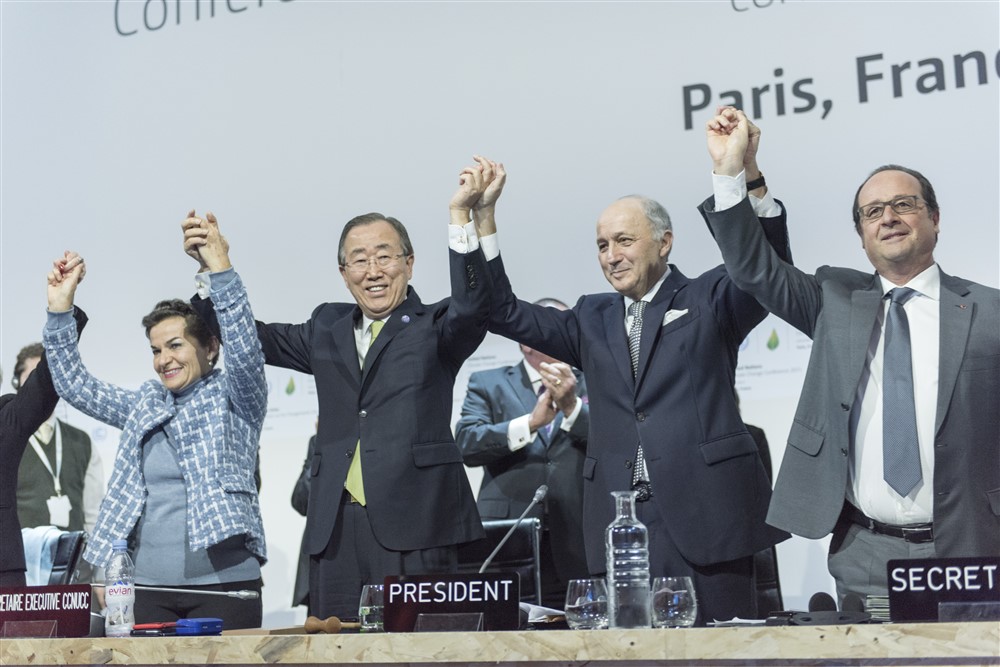
Closing Ceremony of COP21, Paris. UN Photo/Mark Garten
UN Convention Framework on Climate Change
The direct impact of climate change on water resources is increasingly recognized. UN-Water strives to make that impact clear while offering innovative solutions particularly through its Members and Partners working on climate change issues. UN-Water regularly engages in the Conference of the Parties (COPs) to the UN Framework Convention on Climate Change, exploring how to bridge the gap between the producers and users of hydro-climate services, between water and climate communities, and between science and policy-makers and negotiators.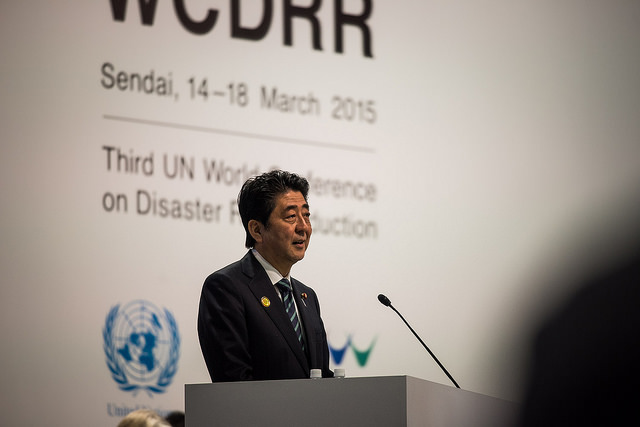
Prime Minister of Japan, Shinzo Abe, at the Third UN World Conference on Disaster Risk Reduction in March 2015 in Sendai City, Miyagi Prefecture, Japan. Photo UN ISDR
The 2015-2030 Sendai Framework for Disaster Risk Reduction
As the climate changes, the international community will increasingly experience water-related disasters such as damaging floods and prolonged droughts. The Sendai Framework for Disaster Risk Reduction sets forth an ambitious agenda to reduce disaster risk along with losses in lives, livelihoods and health of persons, businesses and communities through 2030. Recognizing that most disasters are water-related, UN-Water’s Integrated Monitoring of Water and Sanitation related SDG Targets (GEMI), incorporates target 11.5 to “significantly reduce the number of deaths and the number of people affected and substantially decrease the direct economic losses relative to global gross domestic product caused by disasters, including water-related disasters, with a focus on protecting the poor and people in vulnerable situations.”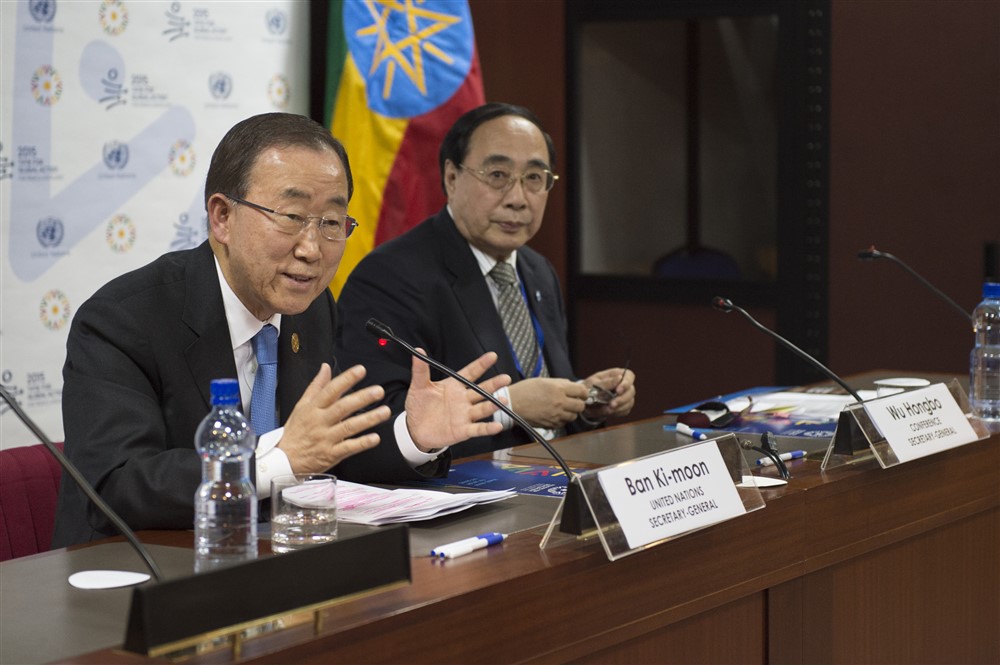
Former Secretary-General Ban Ki-moon (left) addresses a press conference before departing from Addis Ababa, after attending the Third International Conference on Financing for Development. At his side is Wu Hongbo, UN Under-Secretary-General for Economic and Social Affairs. UN Photo/Eskinder Debebe
The 2015 Addis Ababa Action Agenda on Financing for Development
The Addis Ababa Action Agenda is a comprehensive set of over 100 measures to finance sustainable development and transform the global economy with a focus on achieving the Sustainable Development Goals. The UN-Water Global Analysis and Assessment of Sanitation and Drinking-Water (GLAAS) undertakes a regular analysis of official development assistance that is part of a government coordinated spending plan as part of monitoring SDG 6a. GLAAS also provides evidence to inform finance ministers engaged in the Sanitation and Water for All high-level political dialogues.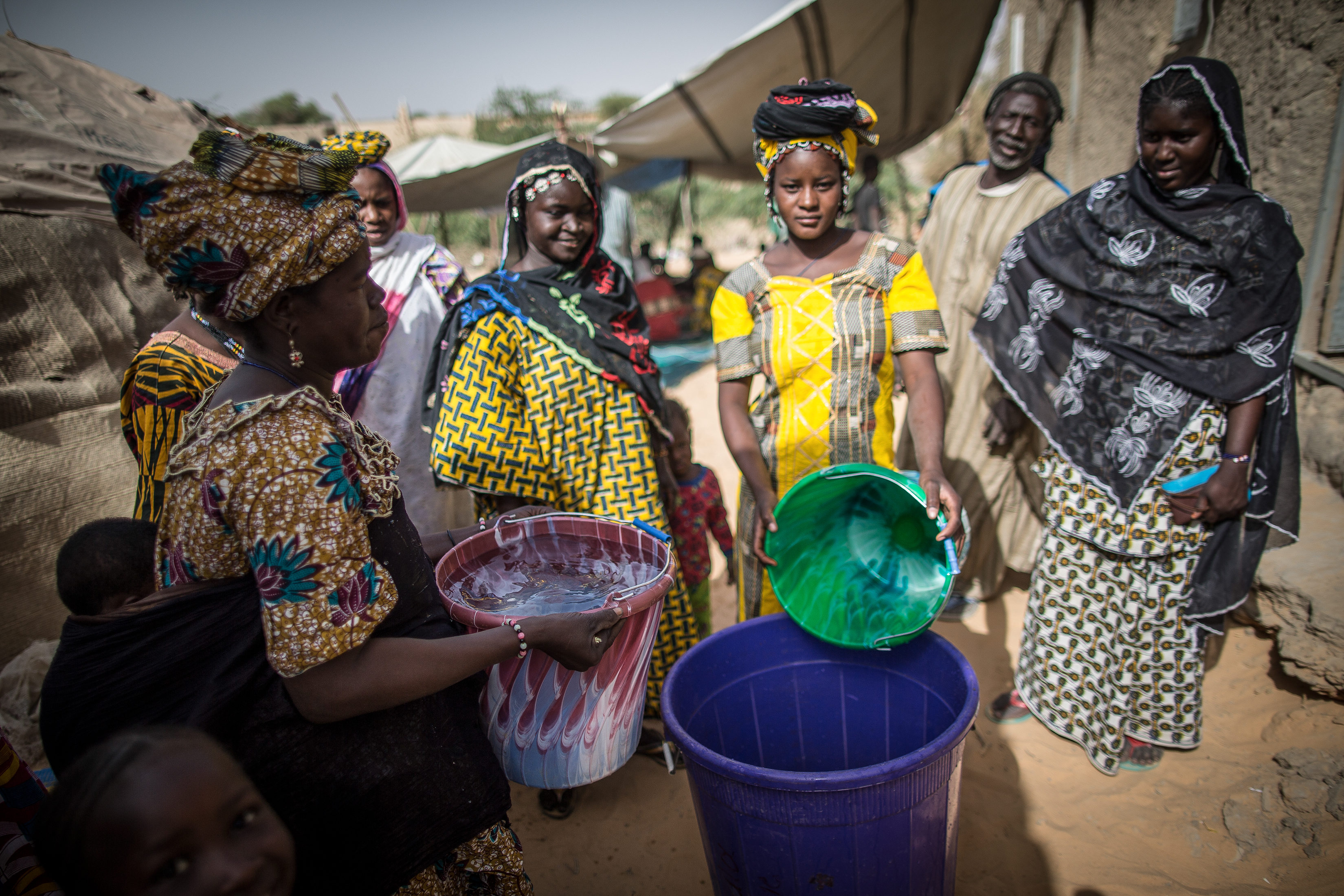
The United Nations Multidimensional Integrated Stabilization Mission in Mali (MINUSMA) completed a community project bringing water to the small villages of Kabara and Tarabangou, near to the city of Timbuktu in northern Mali. The villages had always experience recurrent problems of access to drinking water for the villagers as well as their animals. UN Photo/Harandane Dicko
The Water Action Decade
In December 2017 UN Member States adopted United Nations General Assembly resolution 71/222 on an International Decade for Action on ‘Water for Sustainable Development’ 2018-2028.In response to the ambitious 2030 Agenda, the Water Action Decade will accelerate efforts towards meeting water-related challenges, including limited access to safe water and sanitation, increasing pressure on water resources and ecosystems, and an exacerbated risk of droughts and floods.

